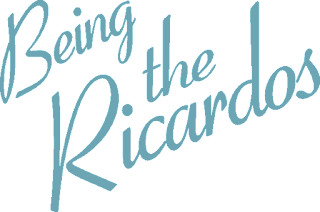Aaron Sorkin’s (“The Social Network,” “A Few Good Men”) biggest mistakes and biggest hits all have something to do with show business. “Studio 60 on the Sunset Strip,” arguably his most maligned work, was a show about the behind the scenes of an SNL style comedy show. “Steve Jobs” followed the titular man as he prepared for three stage presentations that were almost like rehearsed monologues. Love it or hate it, his HBO series “The Newsroom” is at its best when it's focusing on putting on a newscast. Even “Moneyball” and “The Social Network” have elements of showmanship inherently in their DNA.
Which makes him the perfect choice to tackle “Being the Ricardos,” a film following the production of “I Love Lucy” and the relationship between its star Lucille Ball, played by Nicole Kidman (“Big Little Lies,” “The Hours”) and her husband, co-star, and one of the brains behind the show Desi Arnaz, played by Javier Bardem (“No Country for Old Men,” “Skyfall”). And there’s definitely a very Sorkin-esque turning point in their careers that’s the perfect basis for the film: midway through production on the second season of “Lucy,” Lucille was suggested to be a communist on Walter Winchell’s radio show, and the film follows the next week of production as the team struggles to write and prepare for the Friday's episode while wondering when, or if, the other shoe will drop and America will turn on Lucille.
It’s a big dramatic turn of events, and as the film’s basis it works wonderfully well. It allows us in the heads of the cast, pushes Desi and Lucille’s relationship, showcases their butting heads with CBS and their sponsors, and hits home the stress inherent in putting on a show, even a comedy show, that could end in a moment’s notice if the audience gets fickle. Since we’re focusing on the production of that week’s episode, it also means that each member of the production gets a moment, even if it's brief, to shine. Alia Shawcat (“Arrested Development,” “Search Party”) playing Madelyn Pugh, one of the show’s writers, and Tony Hale (“Arrested Development,” “VEEP”) playing Jess Oppenheimer, one of the show’s writers and producers, get a chance to shine because of this, and it really does have a swell, old fashioned “let’s put on a show” vibe to everything. And if that were the entire film, it would be a solid piece of entertainment world drama.
Yet, somewhere along the line, it seems as though either Sorkin or the studio got cold feet. Because the communism plot is only about two-thirds of the film. The other third is made up of two things, one more baffling than the other: a series of extremely cliché “How they met” biopic scenes that are so textbook they could be stock footage and a series of scripted fake current interviews with three of the “I Love Lucy” writers we see as their younger selves in the communism plot looking back on the events of that week.
These two additions are truly baffling as the film has a complete three act plot already at its center. The “Is Lucille a communist” subplot is the perfect subject of the film, and nowhere is this more obvious than when looking at the film’s structure. All of the fake interview and flashback sequences could be cut out of the film cleanly as they have no major bearing on the communism plot. Yes, interviews technically begin and end the film, but if these moments were cut out, it would actually improve both the beginning and ending a bit.
Which is unfortunate. It’s one thing when a film is so flawed that you just have to throw your hands up and accept it. It’s another when it's flawed but the flaws seem so easily fixable. Cut some stuff out, tighten the film up, and you have something that’s immediately improved. Yet, even if these moments were excised from the film, it wouldn’t immediately make it a perfect piece.
At his best, Sorkin’s dialogue style allows for intense moments of back and forth conversations and monologues that leave an impact, practically begging college theatre kids to use them as audition monologues. At his worst though, Sorkin’s writing can seem like a parody of itself, falling flat when it clearly wants to hit it big. “Being the Ricardos” has both, and while the good wins out over the bad, the bad is more noticeable.
There are plenty of heated arguments between Desi and Lucille that feel like verbal jousting, and Sorkin’s vision of Lucille has all of the wit she clearly had on the show. Yet, the film is also peppered with some “inspiration” sequences when Lucille imagines a scene playing out as she reads the script. It’s a fun idea, and it's been used in numerous films about great creatives before. Yet, its one thing to see how Amadeus imagines a piece of music to be. It’s another to watch a dramatic version of Lucy suddenly and immediately imagining the grape stomping scene.
What’s here isn’t all bad, far from it. While it can be too self-serious, there’s still a warm amber glow to everything, bolstered by a game cast and sense of momentum. It’s unfortunate that it’s brought down by choices that, frankly, feel like the work of a nervous studio or director rather than someone as confident in their writing as Sorkin usually is. It brings the project down to the point where it drags for a third of the film. Maybe sometime in the future, a fan somewhere online will edit those interviews and flashbacks out to create the definitive version, much like fans have done with the “Star Wars” films. But until then, this is a film that, for better or worse, resembles a television show. Great material interrupted by hammy boring bits every so often. Just treat these moments like commercials, and fast forward through them. 2.5/5


No comments:
Post a Comment